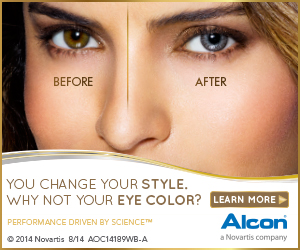- 20131 Highway 59N Suite #2416 Humble, TX 77338
- Call: (281) 446-0440
- Mn - Fr: 10.00am - 6.30pm
- St: 9.30am - 3.30pm
- Sn: 11:00am - 03:00pm
School Eye Exams Vs. Comprehensive Exams

School Eye Exams Vs. Comprehensive Exams
Many school kids face the eyesight problems. An eyesight problem needs to be solved at an early age to avoid any long-term damage. The main problem is parents tend to rely on school eye exams for the correct vision screening. Those screenings can be good but not good enough to be completely dependent on them.

What is school vision examination?
The main point of the screening is to check distant vision. It is done to test how well the child can read a chart from several feet away. But nearsighted vision isn’t tested in the screening. Color-vision testing is also done to check color blindness in kids. Being parents, you should never rely on such examinations. The National Institutes of Health found that professional vision screenings catch only 37% of children with poor vision. This is especially troubling because the most recent National Eye Institute (NEI) prevalence study revealed that 4% of preschoolers have significant nearsightedness, 21% have significant farsightedness, 10% have significant astigmatism, and 3% have significant strabismus (eye turning in or out), as assessed through eye examination. Vision screenings will miss the majority of children with strabismus, astigmatism and most of those with farsightedness.
Disadvantages of school vision examination
Your child’s ability to excel in the classroom might just be dependent on their eyesight, so it’s of the utmost importance to make sure you schedule a comprehensive exam tp provide every opportunity to learn and excel academically. You should not only rely on school vision test for it. The main disadvantages of school vision examination are:
- Many screening facilities lack the equipment and knowledgeable staff, which are essential to screen young children. Traditional screening methods by non-eye care professionals are extremely difficult for children less than 4 years of age. So, it is not safe for your children.
- Most vision screenings test for visual acuity only. Use of a vision chart alone will identify only 5% of the vision problems in children according to the American Foundation for Vision Awareness. A child may be able to see letters 20 feet away but that does not demonstrate whether his/her eyes are able to work together to read materials 12 inches away, or if there is an eye health problem or vision perception problem. It would not bring your child’s actual problems in notice.
- Many eye diseases like Amblyopia, poor eyesight in one eye, sometimes known as “lazy eye, is often missed if the eyes appear aligned. You might not be aware of it.
In many cases, a vision screening can give you a false sense of security. When a child reports says that he is seeing 20/20, parents often assume that no further testing is needed and fail to ever take the child for a comprehensive eye examination. You should always go for comprehensive eye exams.
Advantages of comprehensive eye exams
One of the most beneficial aspects of a comprehensive eye exam is that you can trust that it’s methodically accurate and your kids will experience the difference a comprehensive eye exam can make in their lives. The advantages are:
- A comprehensive eye exam can detect problems with eye movement, and vision training. It can improve the ability of the eyes to track and work together. So, your kids will be equipped with everything according to the procedures of the exam.
- You would get an accurate picture of the movement of eye and disorders related to it by comprehensive eye exams. A doctor of optometry may be the first healthcare professional to detect high blood pressure through a comprehensive eye exam. The fine blood vessels in the retina at the back of the eye can help identify risks of a stroke or heart attack before they occur.
Eye health can often signal the presence and state of serious medical conditions, such as hypertension, which is a leading cause of a heart attack, stroke, and chronic heart failure. What’s more, the information obtained through an eye exam can help healthcare providers treat patients preventively to decrease the risks of cardiovascular disease. So, you need to always opt for comprehensive eye exams rather relying on school eye tests.

